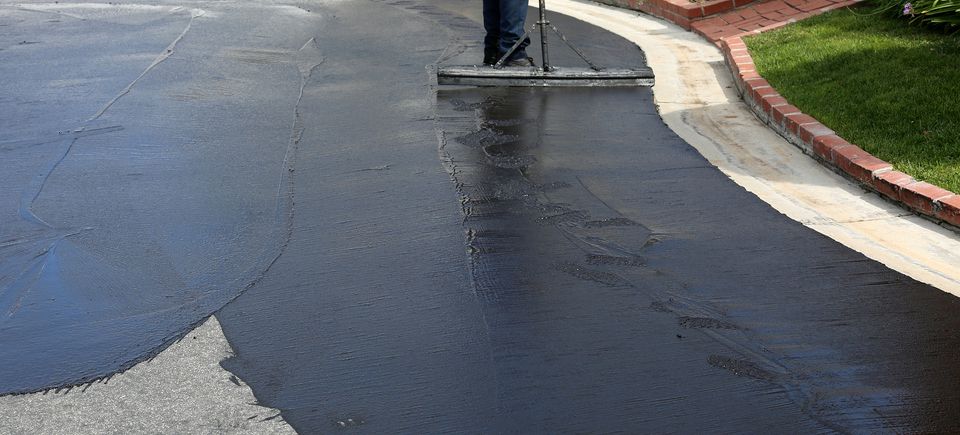Hot Mix Asphalt: A Lasting Service for Sidewalk
Hot Mix Asphalt (HMA) has emerged as a leading sustainable selection for pavement services, using a myriad of environmental advantages and cutting-edge innovations. Its capability to lower and recycle products power usage provides an engaging case for its fostering in roadway construction tasks. Moreover, the long-lasting performance and resilience of HMA make it a recommended alternative for framework growth. As the need for environment-friendly building techniques grows, discovering the nuances of HMA's sustainability can offer important understandings into the future of pavement options.
Ecological Benefits of Hot Mix Asphalt

Furthermore, Warm Mix Asphalt aids to minimize city heat island results. Its dark shade takes in sunshine, lowering the amount of warmth showed back into the atmosphere contrasted to lighter-colored sidewalks. This can lower ambient temperature levels in city locations, reducing the need for air conditioning and eventually minimizing energy intake.
Furthermore, Hot Mix Asphalt adds to improved stormwater administration. Its porous nature allows water to penetrate the sidewalk and reenergize groundwater materials, lowering runoff and the risk of flooding. These environmental advantages make Warm Mix Asphalt a lasting choice for leading freeways and roadways.
Power Effectiveness in HMA Manufacturing
Is power effectiveness a critical aspect in the manufacturing of Warm Mix Asphalt (HMA)? Energy plays a considerable role in the manufacturing of HMA, influencing both price and ecological sustainability. One vital facet of power effectiveness in HMA production is the use of warm mix asphalt (WMA) innovations.
Moreover, developments in plant innovations have resulted in more energy-efficient HMA production processes. Modern plants are designed with attributes like recycled asphalt sidewalk (RAP) handling capabilities, reliable heater systems, and enhanced insulation, all adding to power savings. By enhancing energy use in HMA manufacturing, the sector can minimize its carbon impact while maintaining top notch sidewalk products. Energy effectiveness is, consequently, a vital consideration in guaranteeing the sustainability of Warm Mix Asphalt manufacturing.
Recyclability of Hot Mix Asphalt
The recyclability of Hot Mix Asphalt (HMA) is a pivotal facet of its sustainability and long-lasting ecological influence. HMA is among the most recycled materials in the United States, with over 100 million tons of recovered asphalt sidewalk (RAP) being reused annually in brand-new pavement construction. Recycling HMA offers a number of ecological benefits, such as reducing the need for virgin products, decreasing power intake throughout production, and lowering the amount of waste sent out to garbage dumps.
The procedure of reusing HMA includes crushing the existing pavement, crushing it into smaller items, and mixing it with brand-new aggregate and asphalt binder to create a recycled mix. In general, the recyclability of HMA plays a considerable role in advertising lasting practices within the sidewalk industry.

Long-Term Efficiency of HMA
Asphalt sidewalks demonstrate resilience and resilience over a prolonged duration, showing the long-term efficiency of Hot Mix Asphalt (HMA) Furthermore, advancements in HMA innovation, such as the use of polymer-modified binders and warm mix asphalt, have additionally boosted the toughness and durability of HMA pavements. By focusing on top quality construction and maintenance methods, HMA proceeds to show itself as a affordable and sustainable solution for durable sidewalk facilities.

HMA: Durability and Sustainability
Demonstrating both longevity and sustainability, Warm Mix Asphalt (HMA) has actually come to be a foundation in the construction of long-lasting pavement frameworks - hot mix asphalt. HMA's resilience comes from its capability to withstand heavy loads, severe weather, and high website traffic quantities, making it a dependable choice for streets, highways, and airport runways. The make-up of HMA, which commonly includes aggregates, binder, and filler, plays an essential function in enhancing its long life and resistance to tear and wear
Moreover, HMA's sustainability lies in its recyclability and energy-efficient manufacturing procedure. The ability to recycle reclaimed asphalt pavement (RAP) in new HMA blends minimizes the need for virgin products and minimizes the environmental effect of pavement building and construction and maintenance. Furthermore, the energy effectiveness of producing HMA hot mix asphalt hinges on its reduced blending temperatures contrasted to various other pavement materials, bring about reduced energy usage and greenhouse gas discharges.
Conclusion
In conclusion, warm mix asphalt (HMA) uses a lasting remedy for pavement with its eco pleasant features. HMA's recyclability, energy effectiveness in production, and long-lasting resilience make it an eco-friendly option for road construction.
HMA is one of the most recycled materials in the United States, with over 100 million tons of recovered asphalt pavement (RAP) being reused yearly in new sidewalk building and construction.The process of reusing HMA involves grating the existing sidewalk, crushing it right into smaller sized items, and mixing it with new aggregate and asphalt binder to create a recycled mix.Asphalt pavements demonstrate toughness and resilience over an extended period, showing the lasting performance of Hot Mix Asphalt (HMA) Furthermore, innovations in HMA modern technology, such as the use of polymer-modified binders and cozy mix asphalt, have actually better improved the resilience and durability of HMA pavements. The ability to reuse redeemed asphalt sidewalk (RAP) in new HMA mixtures lowers the demand for virgin products and reduces the ecological impact of pavement building and construction and upkeep.